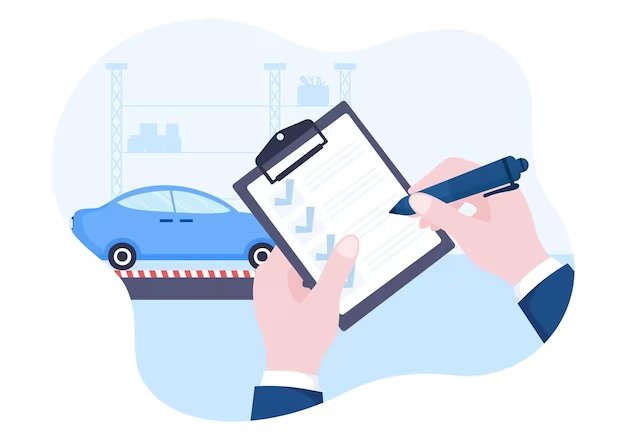
How to start a forex brokerage firm
The world of foreign exchange, or forex for short, is a vast and intricate marketplace where currencies are traded. It’s like the beating heart of the global financial system. If you’ve ever thought about being more than just a trader, and establishing your very own forex brokerage firm, you’re in the right place. Dive in to find out how you can turn this ambition into reality.
Introduction to Forex Brokerage
What is a Forex Brokerage?
At its core, a forex brokerage acts as the intermediary between retail traders and the intricate web of the currency market. Think of it as a bridge – while on one side you have individuals and institutions wanting to buy or sell currencies, on the other side you have the vast global forex market. The brokerage makes these transactions smooth, efficient, and, more often than not, possible for the average Joe. In exchange, they earn through spreads, commissions, or a mix of both.
Why is the Forex Market Significant?
You’ve probably heard that the forex market is the largest financial market globally, but what does that mean in real terms? Well, imagine a market where over $6 trillion is traded daily. Yes, that’s trillion with a “T”! It operates 24/5, given the global nature of trade and the various time zones. This continuous operation offers unparalleled opportunities for brokers to provide platforms for trade. Moreover, its significance stems from its role in global commerce, investment, and even geopolitical events.
Pre-Requisites Before Starting a Brokerage
Understand the Basics of Forex Trading
Before you dive into the world of brokerage, it’s crucial to understand the basics of forex trading. This includes familiarity with currency pairs, how trades work, the impact of global events on currency values, and so on. It’s like learning the rules of the game before deciding to coach a team. There are plenty of online courses, workshops, and resources available to get you started.
Gauge the Competition in the Market
Forex brokerage is a competitive arena. The major players have been in the game for years, sometimes decades. But don’t let this discourage you. Instead, let it inspire you to find your niche. Answer these questions:
- What are the services offered by existing brokers?
- Where do they fall short in terms of customer satisfaction?
Identifying gaps in the market can give you a competitive edge, allowing you to cater to an unmet need.
Deciding on a Business Model
There are multiple business models you can adopt as a forex broker:
- Dealing Desk (DD): Here, brokers set their own bid and ask prices and usually take the opposite side of a client’s trade.
- No Dealing Desk (NDD): In this model, brokers offer the best prices from multiple liquidity providers. They earn from spreads without taking the opposite side of trades.
Your choice depends on your target market, the kind of capital you have, and your risk tolerance.
Steps to Establish Your Forex Brokerage
Selecting the Right Trading Platform
The trading platform is the backbone of your brokerage. It’s the software that your clients will use to conduct their trades. Popular options include MetaTrader 4 (MT4), MetaTrader 5 (MT5), and cTrader. When choosing a platform, consider:
- User-friendliness: How easy is it for traders, especially beginners, to navigate?
- Functionality: Does it offer all the necessary tools and charts for trading?
- Security: How robust are the security measures to protect both the broker and the traders?
| Feature | MetaTrader 4 (MT4) | MetaTrader 5 (MT5) | cTrader |
|---|---|---|---|
| User Interface | Intuitive but slightly dated | More modern and user-friendly | Sleek and highly customizable |
| Timeframes | 9 | 21 | 26 |
| Technical Indicators | 30 | 38 | 65+ |
| Economic Calendar | No | Yes | Yes |
Acquiring Licenses and Registrations
Entering the forex brokerage business isn’t as simple as setting up shop and welcoming traders. It’s a regulated industry, and for a good reason. To operate legally, you must obtain licenses from regulatory bodies, which differ depending on the region or country you plan to operate in. For instance, in the U.S., you’d be looking at the Commodity Futures Trading Commission (CFTC), while in the U.K., it would be the Financial Conduct Authority (FCA).
Ensuring Robust IT Infrastructure
Importance of a Solid IT Backbone
In the forex world, milliseconds can make a massive difference. Imagine if a trader couldn’t execute a trade due to a system glitch, or if there was a delay in order processing – it could result in significant losses. Hence, having a robust IT infrastructure is non-negotiable. This includes powerful servers, backup systems, real-time data feeds, and strong security protocols. Furthermore, with cyber threats looming large, you must ensure that both you and your clients’ data are well-protected.
Strategies for Gaining and Retaining Clients
Importance of Customer Support
You could have the most advanced trading platform, but if your clients can’t get timely assistance when they face issues, they won’t stick around. A responsive customer support system is paramount. Whether it’s a query about leveraging, understanding fees, or technical difficulties, your support team should be well-trained to handle it. Many successful brokerages offer 24/7 support through multiple channels: phone, email, chatbots, and even social media.
Offering Competitive Spreads and Fees
In the competitive world of forex brokerage, traders are always looking for the best deals. While it’s essential to maintain profitability, offering competitive spreads and fees can be the difference between attracting a client or losing them to a competitor. Here are a few strategies:
- Transparent Pricing: Ensure there are no hidden charges. Clarity can foster trust.
- Promotional Offers: Introduce occasional discounts or promotional offers for new sign-ups or loyal clients.
Risks and Challenges in the Forex Brokerage Business
Every business has its challenges, and forex brokerage is no exception. There’s the obvious financial risk, given the volatile nature of the market. Then there’s the challenge of keeping up with ever-evolving regulations. Technology, while an enabler, can also be a double-edged sword, with the constant need for upgrades and threats from cyber-attacks. However, with careful planning, a clear vision, and a commitment to continuous learning and adaptation, you can navigate these challenges successfully.
Conclusion
Starting a forex brokerage is not for the faint of heart. It requires significant investment, both in terms of time and resources. But, with the right strategies in place, the potential for profit and growth is immense. Remember, every successful brokerage started as an idea. With diligence, resilience, and an unwavering focus on customer satisfaction, you too can carve a niche in the bustling world of forex trading.
Frequently Asked Questions
1. What is the initial investment required to start a forex brokerage?
The investment varies widely based on the region, licenses, technology, and infrastructure you opt for. However, a ballpark figure could range from $100,000 to several million dollars.
2. How do forex brokers make money?
Brokers primarily earn through spreads (the difference between the bid and ask price), commissions on trades, and sometimes, by taking the opposite side of a client’s trade in a dealing desk model.
3. Is the forex brokerage industry saturated?
While there are many players in the market, there’s always room for brokerages offering unique value propositions, advanced technologies, or catering to niche markets.
4. How do I ensure the security of my trading platform?
Invest in top-notch cybersecurity measures, regular system audits, SSL certificates, and always keep your software updated to patch potential vulnerabilities.
5. Can I start a brokerage without any prior experience in forex trading?
While it’s possible, having a clear understanding of forex trading is highly beneficial. If you’re new, consider partnering with industry veterans or hiring experienced professionals.


